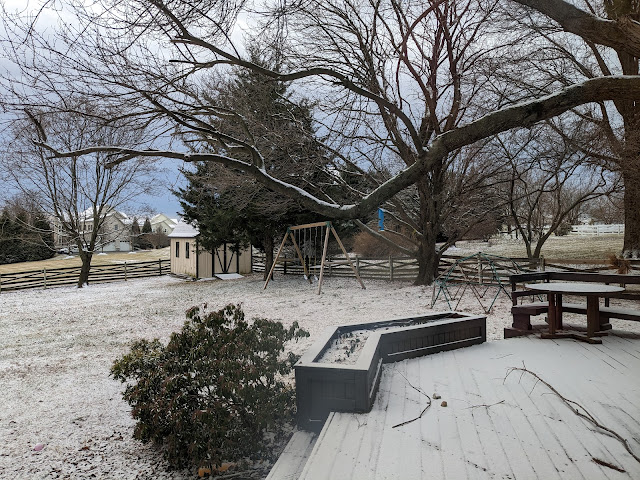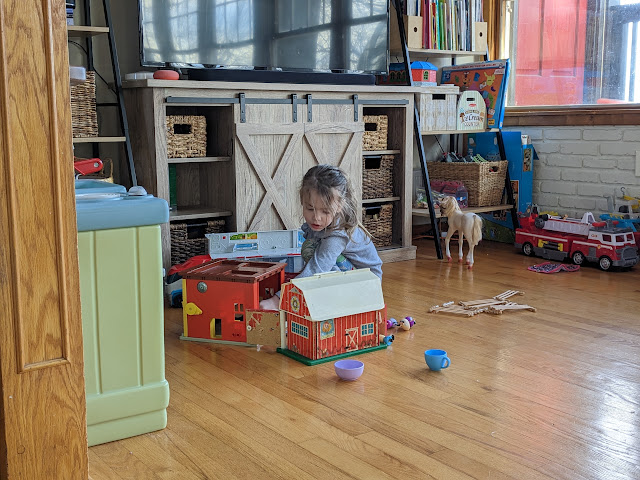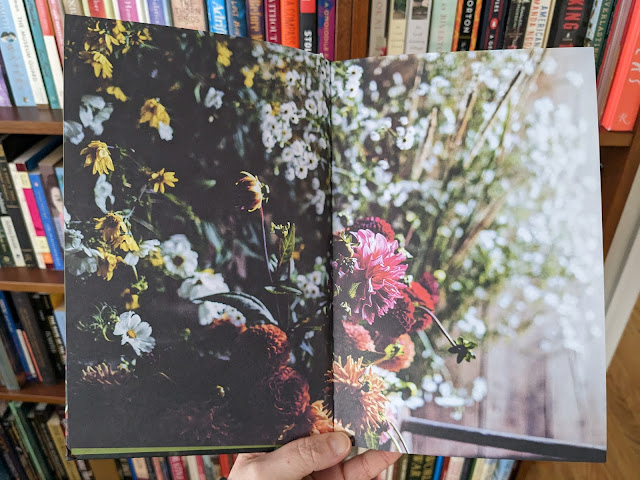And just like that, the first month of 2023 is over. Here's what I read in January.
I started off the year with some quick reads and some books that leaked over from 2022. As the Crow Flies by Melanie Gillman is a YA graphic novel about a LGTBQ girl who goes on a camping and hiking trip with a church group. As the only person of color, she's treated differently within the group. She ends up connecting with another camper with secrets of their own. Overall it was a meaningful story, but it ended abruptly. It seems like the author intended a sequel which, since 2017, still hasn't been published.
Mary (my 9-year-old) started reading the Harry Potter series last year, fulfilling all of my parenting dreams. I hadn't read the original book since it first came out in the late 1990s. It was every bit as charming and fun to read as I remember, and it makes sense that it's now considered a classic of children's literature. It's unfortunate that JK Rowling has gone off the rails and now writes rambling 1000-page books.
Like many others, I loved Oliver Burkeman's Four Thousand Weeks. I was excited to read his earlier book, The Antidote: Happiness For People Who Can't Stand Positive Thinking which was surprisingly hard to track down. Having finished it, I totally understand why Four Thousand Weeks is more popular. The Antidote was academic and dense, with a lot of great information. However, it was hard to pull out the main themes and even now I'm having a hard time remembering any takeaways. Maybe appreciate that it could always be worse?
I'm not the type of reader who finds a new series and then races through all of the books, one right after the other. I tend to read one or two books a year, which means it takes me quite a long time to read full series. A Trick of the Light by Louise Penny is the seventh book in the Armand Gamache series (and the eighth that I have read). It focuses on the art world and is largely set in the adorable town of Three Pines, which made it extra promising. It was fine - but I am not sure if Penny's writing style changed in this book or if it just started particularly annoyed me, but all of the sentence fragments were so hard to read! Here's an excerpt: "Because she had no where else to be. No other hospital bed to sit beside. Her father was dead. Killed by a gunman in the abandoned factory. Beauvoir had seen it happen. Seen Gamache hit." Does this get better in later books? Because if not, I'm going to have to give up on this series!
I am a fan of the Ruth Galloway series, and the author, Elly Griffiths has started writing a new series. For some reason these are marketed as stand alone books even though they all feature the same detective. Bleeding Heart Yard is the third book featuring detective Harbinder Kaur. It's a mystery combing modern-day murders with the death of a student about 20 years ago. I enjoyed reading this one and Harbinder is quickly becoming one of my favorite detectives.
Caste: The Origin of Our Discontents by Isabel Wilkerson was my first read from my
2023 TBR list. I listened to it on audio because I know if I try to read any dense nonfiction it will put me right to sleep! Overall I learned a lot, but this book didn't blow me away like it has the reputation for doing. I was expecting more history and analysis, and while there is a lot (the book is almost 500 pages), there was also a good deal of Wilkerson's personal experiences that read more like memoir. I felt like she was trying to combine two different books into one. She is also
really down on America. I can look at the glass half empty with the best of them, but I think we need to have some hope for our country if we want to improve it.
Grow and Gather: A Gardener's Guide to a Year of Cut Flowers by Grace Alexander was a Christmas gift. The writing and photos were stunningly beautiful; however the text was so tiny, and many of the pictures were way smaller than they should have been! See all the white space in the middle photo? That said, I really loved this book. Contrary to what the title says, it's not really a thorough guide on growing cut flowers; it's more of a meditation on the seasons with a couple tutorials thrown in. Alexander's description of why she gardens in the Introduction is so spot-on: "I do not garden because it is therapeutic. It challenges me and finds my edges. I do it because I am compelled to increase the amount of beauty in the world. I garden because I cannot not." Grace Alexander has a newsletter if you're interested in more:
A Manual for Paradise.

The Half Life of Valery K by Natasha Pulley is about a scientist who is pulled out of prison in the 1960s in Russian to work at a top-secret nuclear facility. This book is based on real incidents and I learned a lot about radioactivity (it was more interesting than I would have thought.) Valery, the scientist, uncovers nefarious goings-on and has to try to save as many people as he can without catching the attention of the KGB. With that description, you wouldn't expect this book to be funny - but it was, complete with an octopus. There was also a ton of anachronism and modern idioms, which happened so frequently that it had to be intentional. I recommend this one if you're looking for unique historical fiction.
Did you read anything good in January?















